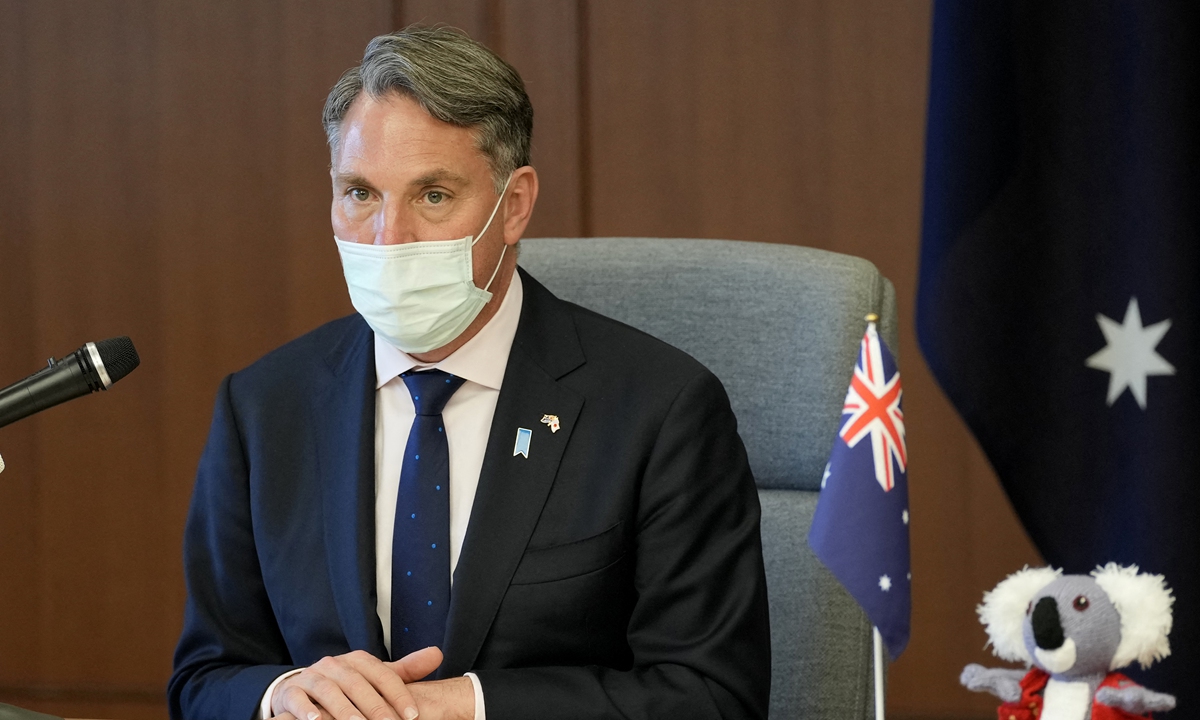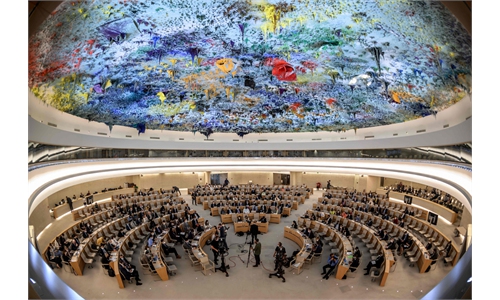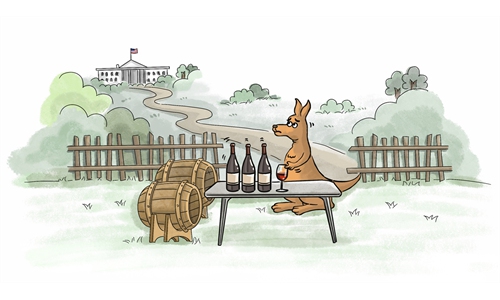
Australian Defense Minister Richard Marles Photo: AFP
Australian Defense Minister Richard Marles kicked off his four-day visit to India on Monday. On Wednesday, he held discussions with his Indian counterpart Rajnath Singh.According to their joint press statement, their discussions were only for normal exchanges between the two defense chiefs. Australia's new government may intend to seek mutual understanding with India through interactions among their defense ministers, and continue the previous government's India policy.
"Australian Prime Minister Anthony Albanese has been in office for one month. So far, there has been no sign of the new government's distinctive diplomatic thinking. Instead, it has inherited almost all mind-sets of the two prior governments, including the attitude toward China, the US and the 'Indo-Pacific Strategy,'" Chen Hong, director of the Australian Studies Center at East China Normal University, told the Global Times.
Australia has been attempting to woo India in recent years. In Washington's 'Indo-Pacific Strategy,' India plays a big role. The strategy will not run smoothly without US having good ties with India. As a follower of the US, Australia believes that India must be firmly locked in the "Indo-Pacific Strategy."
Furthermore, after losing some Chinese markets due to its deteriorating ties with China, Australia has been looking for alternative markets and India is one of them. It can also explain why Canberra has launched a charm offensive toward New Delhi.
"Australia has long followed Washington's lead, but it has realized that with the US' decline, what Washington is doing is just providing lip services in the Indo-Pacific region," said Lan Jianxue, director of the Department for Asia-Pacific Studies at the China Institute of International Studies. "This has triggered Australia's nerves on edge. Against this backdrop, Canberra would like to ramp up cooperation with other countries to defend its interests."
During his visit in India, Marles' rhetoric on China had also drawn wide attention. In an interview with ABC News on Wednesday, he said Australia and India have been drawn together because both countries are wrestling with the "difficult problem" of how to reconcile strong economic ties with China and shared anxieties over China's growing military might.
Marles is trying to rope in India to counter China. Today, Canberra is making Beijing an enemy. India, whose population comes second across the world, is also a big market of China. From the perspective of Canberra, if India maintains open or even proactive cooperation or interactions with China, Australia will not be able to realize its plan to contain China. Therefore, Marles has tried to persuade India to take sides with Australia in dealing with China.
Marles also said, "The assault on Indian forces along the Line of Actual Control in 2020 was a warning we should all heed. Australia stood up for India's sovereignty then and continues to do so now."
His lines are to incite India's confrontation with China. Australia hopes to achieve its geopolitical purposes by driving a wedge between China and India. Chen noted that when the border situation between China and India tended to become stable and normal exchanges between the two countries and the two militaries take place, Marles' remarks are almost vicious provocations, in an attempt to trigger India's hostility toward China. Marles' rhetoric is disgraceful. Any responsible power should promote peace and stability, rather than incite confrontation.
"The intent of exploiting the China-India border disputes to make trouble demonstrates that Australia has limited means to sow discord between China and India," said Lan.
The joint statement did not refer to China. As of press time, there is no report about Singh's response to Marles' words on China. This indicates that India has different views on China and its relations with Australia and India's willingness to strengthen ties with Australia seems not as strong as that of Australia.
In the Quad mechanism, in which India and Australia are members, the four countries' manners differ. That all Quad members have their own calculations determines that it remains uncertain what role this bloc can play in the region.



